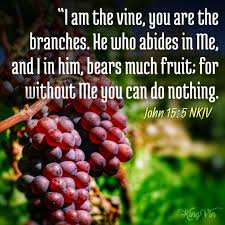On a third consecutive Sunday[1] we are captivated by the image of the Vineyard. In fact, since times immemorial, prophet after prophet has made use of this charming feature of Israel’s landscape to make a valid point. With grapes as an agricultural item playing an important role in the economy, society, and even in the faith traditions of the Jews, and later of the Christians too, it is no wonder that the Holy Bible abounds in parables relating to the Vineyard.
Bible commentators say that one of the best-known uses of the vineyard symbol in the Old Testament occurs in Isaiah, of which today’s First Reading (Is 5: 1-7) provides the core: “The vineyard of the Lord of hosts is the house of Israel.” Here, Isaiah recalls how the owner (who represents God) tenderly cared for his vineyard (His people Israel). And yet, how did the vineyard respond? By producing wild grapes (unruly behaviour or sin). It is quite natural that the owner should destroy such worthless plantations (quite clearly, symbolic of retribution for sinful human behaviour).
Historically speaking, the retribution that Isaiah hinted at was the Assyrian military attack that the southern kingdom, Judah, was anticipating, just as the northern kingdom of Israel had experienced earlier. The Prophet’s argument was that God had punished Israel for their unfaithfulness; and Judah could well avert its share of problems by changing their ways and strictly following God’s law. Yet, Isaiah is not all that hopeful, for God had once looked for justice but witnessed bloodshed; righteousness, and alas, beheld a cry.
Jesus’ parable in the Gospel text (Mt 21: 33-43) uses the vineyard symbolism with a more palpable human element: it replaces wild grapes with wild tenants. Since they have beaten, stoned, abused and killed the owner’s servants, and even his son, all of whom he had dispatched, in quick succession, he “put[s] those wretches to a miserable death, and let[s] out the vineyard to other tenants who will give him the fruits in their seasons.”
 How loaded with meaning! While the owner here still symbolises God, and the vineyard His people Israel, the ominous part is that the tenants represent officialdom and religious authorities to whom souls have been entrusted. Have they been reliable stewards of God’s property? The son there is the Son of God, Jesus Christ our Lord. Did Israel respect Him? No; they took Him who was the heir, cast him out of the vineyard and killed him. And what about us today? We still do the same every time we reject Him and through other sinful acts.
How loaded with meaning! While the owner here still symbolises God, and the vineyard His people Israel, the ominous part is that the tenants represent officialdom and religious authorities to whom souls have been entrusted. Have they been reliable stewards of God’s property? The son there is the Son of God, Jesus Christ our Lord. Did Israel respect Him? No; they took Him who was the heir, cast him out of the vineyard and killed him. And what about us today? We still do the same every time we reject Him and through other sinful acts.
Alas, while many have embraced the Faith, not all have stayed faithful. Thus, after Israel rejected Jesus, the Faith moved to the West, where it flourished for centuries, fulfilling the words of our Lord and Master: “The kingdom of God will be taken away from you and given to a nation producing the fruits of it.” But, eventually, that part of the world too, after reaping the fruits of Christian Civilisation, was ungrateful and failed to cling to the old rugged Cross. With ever-growing affluence and misplaced confidence, the West slowly but steadily dropped their guards, and finally apostatised. And most worrisome is the fact, as Pope Paul VI put it, way back in 1972, that “the smoke of Satan has entered the Church of God.”
Jesus is that rejected stone whom God has destined to be the cornerstone of salvation: “The very stone which the builders rejected has become the cornerstone; this was the Lord’s doing, and it is marvellous in our eyes.” Presently, the greatest hope comes from the Asian and African continents. For instance, in a nascent sovereign country like East Timor, the people have chosen the Catholic Faith, and this has gone from strength to strength (20% – 98%). For their part, several African nations have been among the staunchest supporters of Catholic morality and discipline, as seen from their brave rejection of homosexuality, transgenderism, divorce, ordination of women, and so on. Their Cardinals assert themselves at the Vatican and their people at home are among those who show God’s Vineyard as an image of hope.
Finally, even while social, political, economic and environmental issues on our fragile planet are beginning to assume apocalyptic proportions, we must be people of hope – not grapes of wrath but of sweetness. Elsewhere in the Bible, Jesus says, “I am the Vine, you are the branches” (Jn 15: 5). In the Apostolic Age there was a question on whether values of the Greco-Roman pagan civilisation could be absorbed. In response, St Paul appealed to the Philippians to exercise discernment about what is true, honourable, just, pure, lovely, gracious, excellent and worthy of praise. One more reason to take seriously the Apostle of the Gentiles’ exhortation in the Second Reading (Phil 4: 6-9): “Have no anxiety about anything, but in everything by prayer and supplication with thanksgiving let your requests be made known to God. And the peace of God, which passes all understanding, will keep your hearts and your minds in Christ Jesus.”
————————
[1] As an exception this year, the Readings of the twenty-sixth Sunday pertained to the Feast of St Thérèse of the Child Jesus.